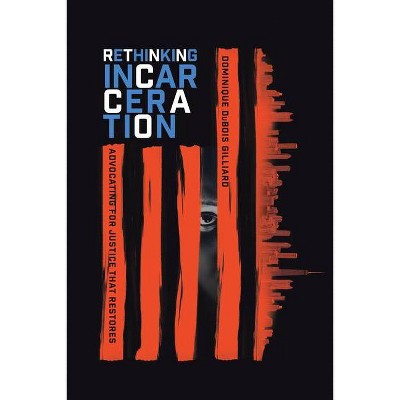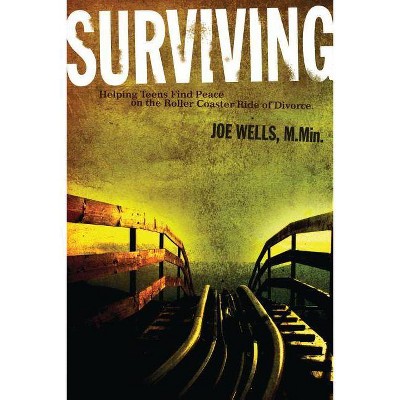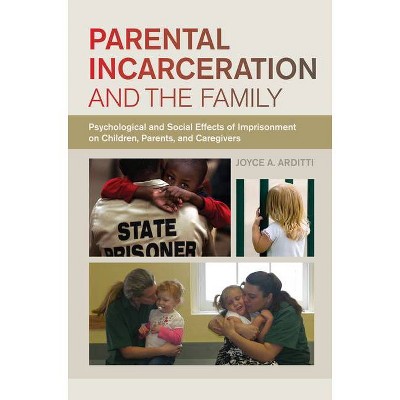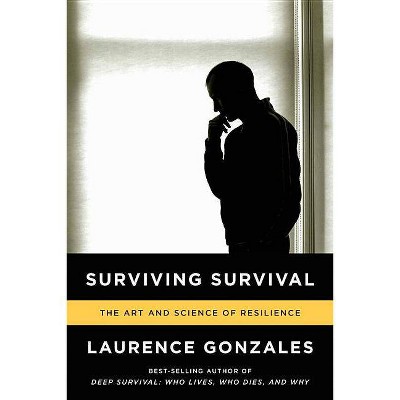Surviving Incarceration - by Rose Ricciardelli (Paperback)
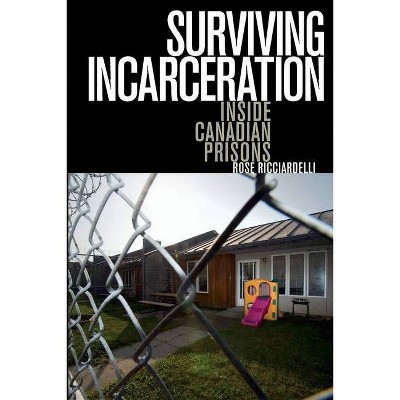
Similar Products
Products of same category from the store
AllProduct info
<p/><br></br><p><b> About the Book </b></p></br></br>This book outlines the modern inmate code that governs prisoner behaviours, the formal controls put forth by the administration, the dynamics that shape sex-offender experiences of incarceration, and the personal growth experiences of many prisoners as they cope with incarceration.<p/><br></br><p><b> Book Synopsis </b></p></br></br>Is prison a humane form of punishment and an effective means of rehabilitation? Are current prison policies, such as shifting resources away from rehabilitation toward housing more offenders, improving the safety and lives of incarcerated populations? Considering that many Canadians have served time, are currently incarcerated, or may one day be incarcerated-and will be released back into society-it is essential for the functioning and betterment of communities that we understand the realities that shape the prison experience for adult male offenders. Surviving Incarceration reveals the unnecessary and omnipresent violence in prisons, the heterogeneity of the prisoner population, and the realities that different prisoners navigate in order to survive. Ricciardelli draws on interviews with almost sixty former federal prisoners to show how their criminal convictions, masculinity, and sexuality determined their social status in prison and, in consequence, their potential for victimization. The book outlines the modern "inmate code" that governs prisoner behaviours, the formal controls put forth by the administration, the dynamics that shape sex-offender experiences of incarceration, and the personal growth experiences of many prisoners as they cope with incarceration.<p/><br></br><p><b> Review Quotes </b></p></br></br><br>Ricciardelli walks the reader through the correctional system in Canada and explains well the trajectory created by a classification system which operates from reception through to the various security levels until release. Her overview of the penal apparatus's processes are deftly handled and, as with the remainder of the text, written in a way which is accessible to a wide audience.... One of the main contributions of <i>Surviving Incarceration</i> is the way that Ricciardelli integrates the ever-present risk discourse into her analysis of life in prison. Her consideration of how risk management rationalities by the state permeate the prison environment is not new, but her discussion of how risk mitigation is employed by the incarcerated adds a layer to the discourse. Ricciardelli manages to expose the ways that the idea of riskiness has created a shift in the prison culture. For example, in her discussion of the 'inmate code, ' the author notes that there has been a shift from using the code as a tool of convict solidarity to being individualistically instrumental to surviving prison; this transformation is a profound one which has dramatically altered how people 'do time, ' and represents an important contribution to the literature.--Melissa Munn "Criminal Law and Criminal Justice Books (Rutgers), 2015"<br><br>Ricciardelli's interviewing skills are enviable. She evidently put her subjects well at ease, appearing, if not supportive, then certainly non-judgemental.... Ricciardelli sometimes conveys personal views about the politics of incarceration; observations that are both welcome and rendered more credible by her general recalcitrance. For instance, she speaks with weary conviction about the failure of 'get tough' sentencing measures and the costly repercussions they have had, observing that the Harper government's signal item of tough, correctional legislation--Bill C-10-- has had serious after-effects and 'was not met with the opposition it warranted.'... Ricciardelli also identifies breath-taking cynicism on the part of a federal government that cashes in on uninformed public sentiment by stuffing too many inmates into too small a space and ignoring the needs of the mentally ill. In addition, correctional policy all too often plays to those who believe criminals can be effectively deterred by the prospect of lengthy sentences, that punishment alone is a fitting central goal for correctional policy.... Federal policy also runs counter to another Conservative tenet--budget reduction. Ricciardelli notes that federal correctional budgets have shot up an astonishing 36.6 percent between 2005 and 2009, reaching a total of $2.3 billion. Much of the increase is owed to the inmate population having grown from 12,000 to about 15,000 in the past decade--notwithstanding a steady decrease in crime rates. Prisoners who are supplied with effective rehabilitation programs and employment skills would be less likely to recidivate, Ricciardelli reasons, a fact that is, 'overlooked or simply ignored.' The inescapable inference one comes away with from <i>Surviving Incarceration</i> is that the penitentiary service tolerates--and to some extent, even facilitates--the hell of inmate existence so that inmates who are transitioned to lower security settings will toe the line and do whatever they can to avoid being sent back. Why have these cynical mechanics not been effectively conveyed to voters, taxpayers and opinion leaders?... Ricciardelli may or may not find a wide audience for her book, but the expertise she acquired in writing it has made her a very useful resource for journalists and researchers hoping to tackle this most closed of systems. One hopes her authoritative voice will be heard often.--Kirk Makin "Literary Review of Canada"<br><br>Rose Ricciardelli's study of Canadian prisoners is one of the best I've ever read on the subject of prisons. In the tradition of John Irwin and Donald Clemmer, she provides an excellent update on inmate culture and provides keen insights into the penal environment, which she calls 'largely homophobic' and 'built on power relationships with aggression and violence presented as acceptable platforms to express or enact masculine dominance.' A must-read.--Randall G. Shelden<br><br>We are accustomed to the perceived risks associated with prisoners being released but lack sufficient information on the risks of imprisonment and release as experienced by offenders. In a careful and well-crafted account Rose Ricciardelli has brought to the forefront the lived experiences of prisoners and in doing so challenges the data-narratives created by the criminal justice system. In centring on the ways prisoners negotiate their prison time and respond to the pressures of re-entry Dr. Ricciardelli provides us with an informative and insightful perspective on prison life in Canada.--Donald G. Evans<br>
Price History
Price Archive shows prices from various stores, lets you see history and find the cheapest. There is no actual sale on the website. For all support, inquiry and suggestion messagescommunication@pricearchive.us
